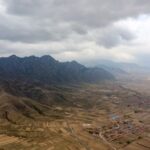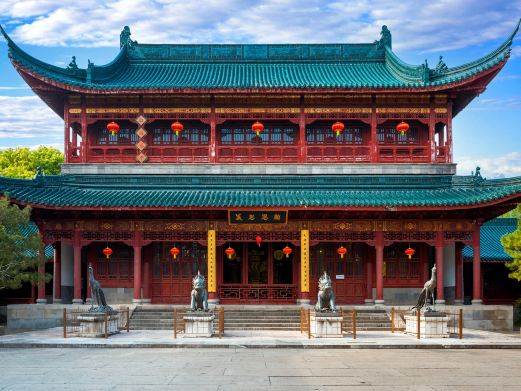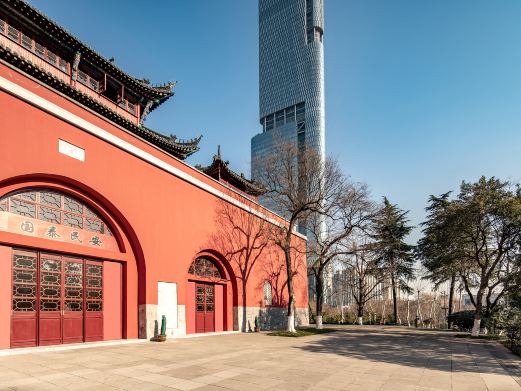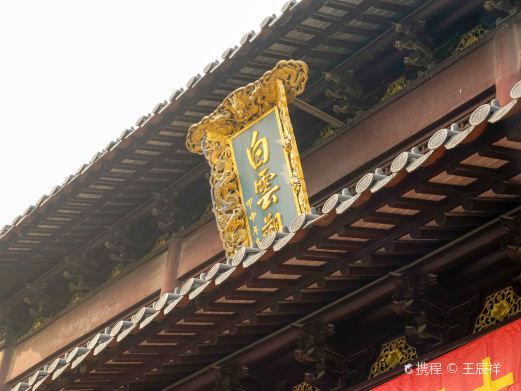Xiaojiu Hua is located two li northwest of Caishi Town, Ma’anshan. It is a must-pass place when driving from Ma’anshan to the Caishi scenic area. The mountain is hundreds of feet high and has a circumference of 15 li. According to legend, Ksitigarbha once lived here and left many magical legends. As early as ancient times, a Ksitigarbha hall was built here, which is magnificent and attracts an endless stream of tourists. For thousands of years, on the 15th day of the first lunar month and the 30th day of July every year, incense burners come in an endless stream. Due to the beautiful mountains and extremely prosperous incense, it is very similar to Jiuhua Mountain in Qingyang hundreds of miles away, so it is called ‘Xiaojiu Hua’. Originally named Wangfu Mountain. In ancient times, a woman was here waiting for her husband to return and turned into a huge rock. So far, the three characters ‘Wangfu Stone’ can still be vaguely seen. Xiaojiu Hua was originally a cliff hill standing by the river. Due to the changes in the Yangtze River’s course and sediment deposition in history, it protrudes by the river and appears even more like a jade peak standing upright, supporting the sky and stabilizing the earth, presenting a unique spectacle. Xiaojiu Hua Mountain is closely adjacent to the famous Caishiji scenic area. It overlooks the Yangtze River and looks north at Xishan Mountain. Xiaojiu Hua Mountain is located in a subtropical monsoon climate. The climate is mild and cool, like spring all year round, with sufficient sunlight and abundant rainfall. Xiaojiu Hua Mountain is located in a subtropical climate. The plant resources are very rich. There are evergreen coniferous trees, mixed broad-leaved and deciduous trees, and there are also artificial forests. There are many plants with ornamental and cultivation value for planting and breeding, such as osmanthus, honeysuckle, and mountain plums. There are also wild Chinese medicinal materials and other plant resources with high economic value. The trees in Xiaojiu Hua are dense and provide good conditions for wild animals to inhabit and live: hares, hedgehogs, cuckoos, and woodpeckers. They live in peace with humans. The sounds of birds are either crisp or melodious, forming another scenic line. Open all year round from 8:30 to 18:00.
Xiaojiu Hua Temple
Xiaojiu Hua is located two li northwest of Caishi Town, Ma’anshan. It is a must-pass place whe[...]









